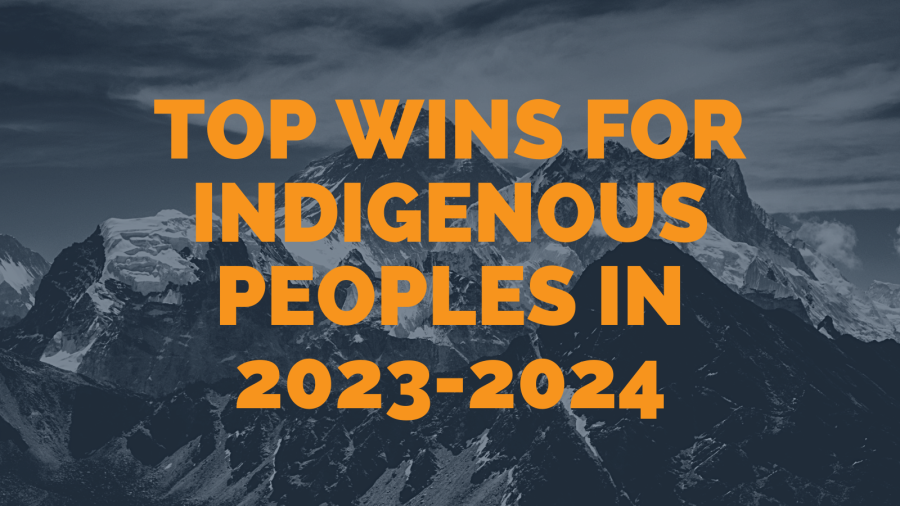
For Immediate Release
Contact: Helen Magata, Tebtebba Foundation
len@tebtebba.org
A Collective Statement from the International Indigenous Peoples Forum on Climate Change
Glasgow, Scotland (November 12, 2021). Countries from around the world have committed to climate financing to support climate action but what does that really mean? While a growing number of state and non-state actors heeded to a call for increased climate finance, the structure continues to fall short of effectively addressing the needs of Indigenous Peoples. This has amounted to small, short-term, project-based funding that is not scalable and completely narrow in scope and reach.
Over $19.2 billion from combined public and private funds has been pledged at COP26 to end deforestation by 2030 and another $1.7 billion in support of Indigenous Peoples’ land and forest tenure. We welcome these commitments and we also urge that there are mechanisms in place, specifically from state actors, that ensure that these resources actually reach Indigenous Peoples. Indigenous Peoples are demanding an inclusive, just and equitable climate financing channeled directly to Indigenous communities both in developed and developing countries.
Why the need for a dedicated climate financing mechanism for Indigenous Peoples?
It has become clear that Indigenous Peoples are disproportionately impacted by climate change, yet there remains an unequal access and benefits to climate financing under existing arrangements, for example, through the Green Climate Fund, which to date, has not accredited a single Indigenous organization, owing to the governance structure that makes it difficult or impossible for Indigenous Peoples to comply.
It is essential that Indigenous Peoples have direct access to finance, rather than systems that route funding through intermediary organizations that are completely inaccessible and unreliable. Dedicated climate financing for Indigenous Peoples could provide support for us to maintain, restore and enhance our knowledge and practices that care for the Earth, to promote Indigenous food sovereignty, create an appropriate structure for loss and damage to compensate Indigenous Peoples, and advance the rights of Indigenous women and persons with disabilities within the climate agenda.
Climate financing could also enhance in-country capacities of Indigenous Peoples to bring in their priorities to national country programming or an integrated and holistic adaptation and mitigation planning. This could advance Indigenous self-determination by investing in our collective capacity to administer and manage climate finance based on our priorities, systems of governance, and our knowledge systems.
At COP 26, we must change the narrative that perpetuates an understanding of climate finance focused solely on numbers, whether the number of beneficiaries or tonnes of carbon equivalents. Instead, climate finance must respect, protect and uphold Indigenous Peoples’ rights and self-determination, building our collective capacity to manage our own priorities and support our ability to adapt and strengthen our resilience.
Equally important is the need for a political change to see how climate finance is correcting the climate injustice that Indigenous Peoples have and continue to experience. Because for as long as we continue business as usual, as long as profit-seeking actors continue to control climate funds without Indigenous Peoples’ leadership and Free, Prior and Informed Consent (FPIC), the $19.2 billion pledge or any other climate finance for that matter, will remain a wolf in sheep’s clothing.
###
About the IIPFCC
The International Indigenous Peoples Forum on Climate Change (IIPFCC) was established in 2008, as the caucus for indigenous peoples participating in the UNFCCC processes. The IIPFCC represents the caucus members who attend the official UNFCCC COPs and intersessions of the SBSTA/SBI bodies in between COPs. Its mandate is to come into agreement specifically on what IPs will be negotiating for in specific UNFCCC processes.



